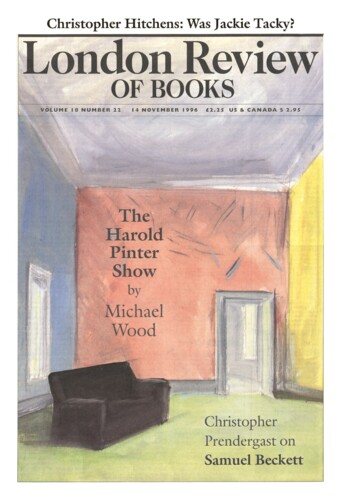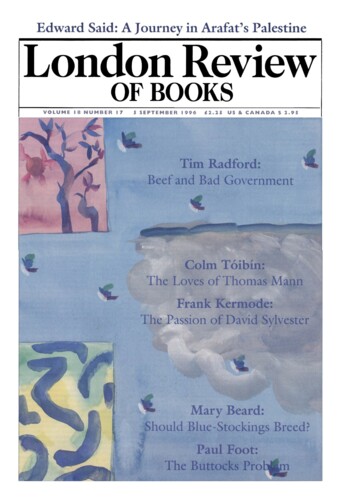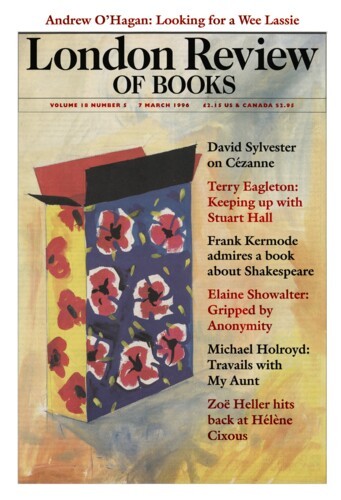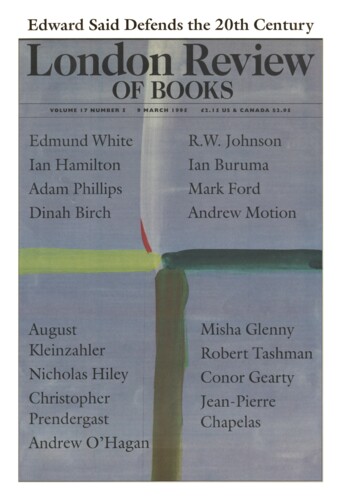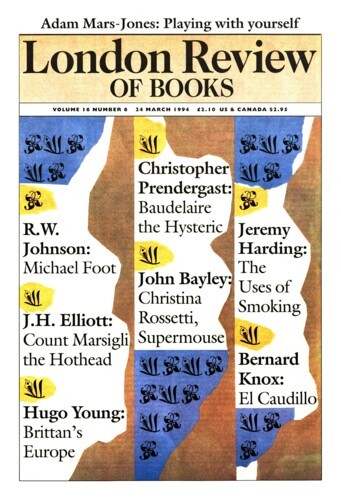Il n’y a pas de Beckett
Christopher Prendergast, 14 November 1996
‘You’re on earth, there’s no cure for that,’ says Hamm to Clov in Endgame. This is sometimes taken as a summary of what is alleged to be the distinctively bleak Beckettian world-view, but for it even to be a starter in this role, one would have to figure out what it means. For, as the philosopher Stanley Cavell observed, the meaning(s) will vary according to the stress-pattern the actor’s voice imposes on its principal terms; if, for example, on ‘cure’, this of itself would not preclude other worthwhile possibilities for our terrestial condition, and if on ‘that’, there could be an implicit invitation to countenance other-worldly aspirations. Similar considerations of a less starkly ultimate kind might arise in connection with the subtitle of James Knowlson’s new biography: ‘The Life of Samuel Beckett’. (The main title looks suspiciously like a publisher’s wheeze, a low-grade spin on Beckett’s desperate formula for the modern artist as doomed to fail or, more tantalisingly, as driven by a ‘fidelity to failure’ and the mind-bending imperative of Worstward Ho: ‘Fail. Fail again. Fail better.’) In the subtitle, is the stress to fall on noun or definite article? If the former (implying an account of the life-story of Samuel Beckett), there is already a problem. How might such an account proceed in relation to its subject given the peculiar inflection of ‘autobiographical’ discourse provided by the subject himself (in his description of How It Is)?
